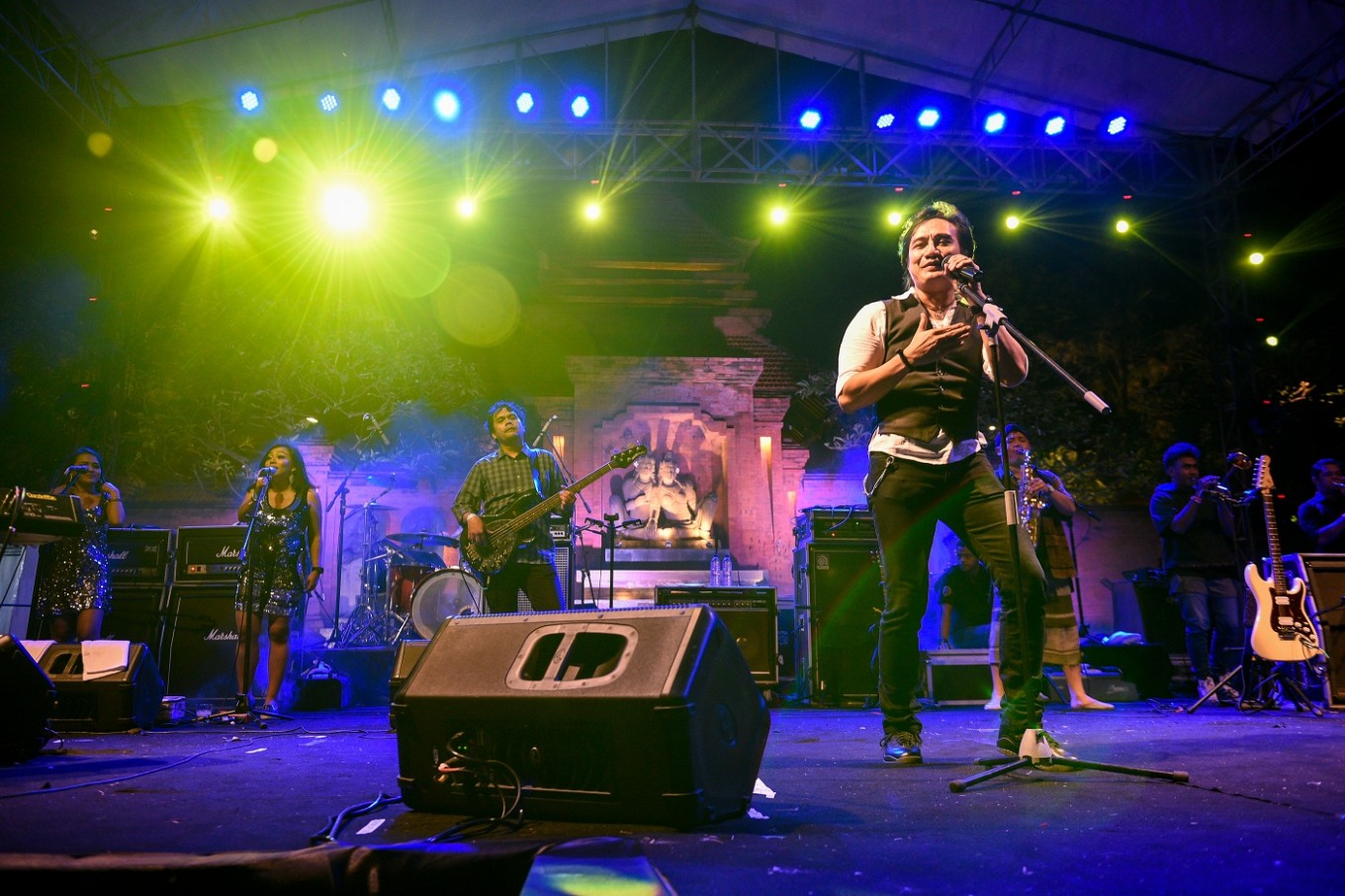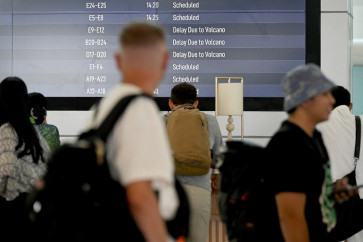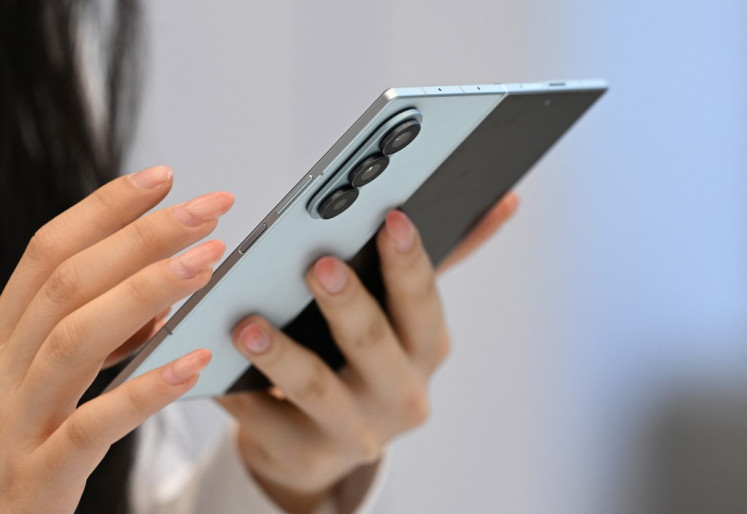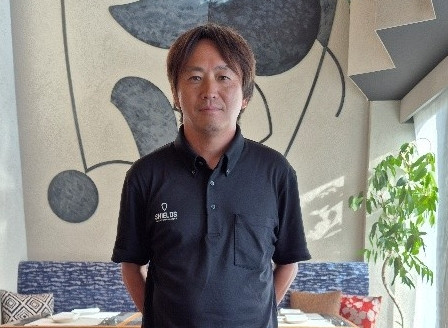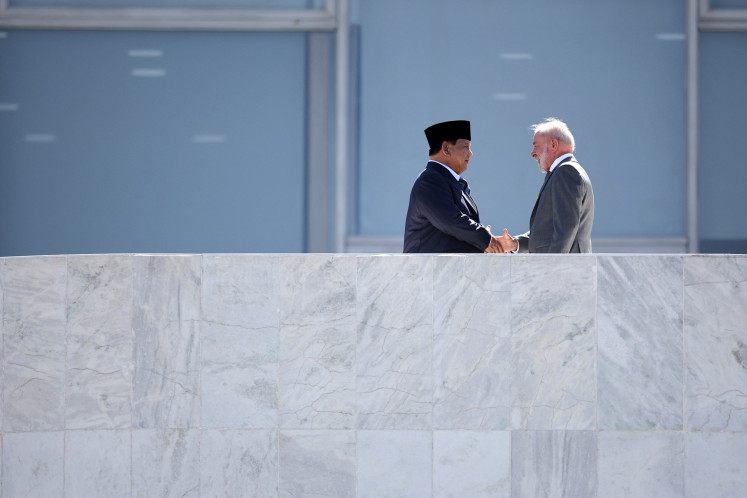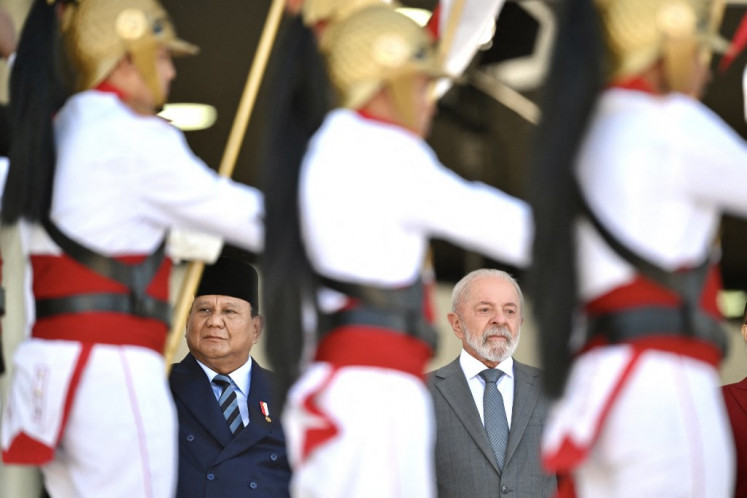Popular Reads
Top Results
Can't find what you're looking for?
View all search resultsPopular Reads
Top Results
Can't find what you're looking for?
View all search resultsKaton Bagaskara relaxes copyright rules for KLa Project songs
Katon’s tweet expresses his intention to relax the copyright rules so that the public can enjoy his music in a more expressive way.
Change text size
Gift Premium Articles
to Anyone
S
inger-songwriter Katon Bagaskara has announced that he will let fans cover the songs he wrote for his solo project and his band KLa Project, without having to ask the musician's consent.
Gaees, kamu semua bebas utk mengcover semua lagu saya dan KLa di sosmed/ dunia internet, tidak perlu minta ijin, kami tdk akan menuntut apa2 asal kamu tdk mencuri lagu2 itu utk kepentingan komersil. Selamat berekspresi yaa!!https://t.co/oU4TbkvCPv
— Katon Bagaskara Official (@katonbagaskara) September 4, 2020“Guys, you are all free to cover all my songs and KLa’s songs on social media/internet, [you] do not have to ask for permission,” he said in his official Twitter account.
However, the cover songs are not to be used for commercial purposes.
“We won’t ask for anything at all unless you steal it for commercial use. Have a good time expressing yourself!”
In his tweet, Katon attached a link to a news website on how to avoid legal problems when posting a cover version on YouTube. Cover songs are commonly found on YouTube and other social media platforms that support audio.
KLa Project was founded by Katon Bagaskara, Romulo “Lilo” Radjadin, Adi Adrian and Ari Burhani in 1986. During its heyday in the late 1980s until the 1990s, they released numerous hits with major labels Aquarius Musikondo, Sony Indonesia, Team Record and Pro Sound. The music copyrights are protected under Law No. 28/2014 on copyrights, which typically says “all rights reserved”.
“What KLa [Katon] did, principally and legally, is similar to the practice of a Creative Commons license," Hilman Fathoni, copyright legal expert and Indonesian representative on Global Creative Commons Network, told The Jakarta Post on Tuesday. "He gave an affirmation about an exception for people who want to use his works.”
A Creative Commons license is one of several public copyright licenses that enable the free distribution of an otherwise copyrighted work.
According to Hilman, Katon’s intention is covered by Attribution-NonCommercial 4.0 International (CC BY-NC 4.0).
Read also: Jimi Hendrix’s ‘magic boa’ is up for auction
Under this license, the public is allowed to share (to copy and redistribute the material in any medium or format) as well as to adapt (to remix, transform and build upon the material) except for commercial use. The cover version creators also have to give attribution, which is appropriate credit to the original creator.
“Actually, this is already regulated under Indonesian copyright law on copyright limitation in the context of online use. However, because copyright law is still limited and can lead to multiple interpretations — for example, if the work user’s interpretation on commercialization differs from the musician’s interpretation — these open licenses [Katon’s tweet] act as an affirmation from the musician to give legal certainty to their work users,” Hilman said.
He added that any kind of written statement published by the musician about their preferred license is a strong legitimation for the public to use the musician's work, as well as a legitimate restriction to prevent the public from violating certain conditions, for example to commercialize the cover versions.
Fans can avoid monetizing their cover versions to respect the musicians’ copyright wishes by following the guidance regulated by the platform.
On popular video streaming platform YouTube, creators can set their monetization status to off.
However, even if the monetization status is turned to on, any royalty gained will be given to the copyright holder, either the record label, publisher or the musician. YouTube has an automatic system that will detect the use of copyrighted music in a posted video.
Wafiq Giotama, video creator behind the popular ukulele channel IndoUkeTube, says that he usually shares the profits from a cover video he makes with the original musician.
“YouTube will automatically detect the music on the cover video and notify the musician or the copyright holder. The monetization decision will come from the copyright holder,” Wafiq told the Post. (wng)

